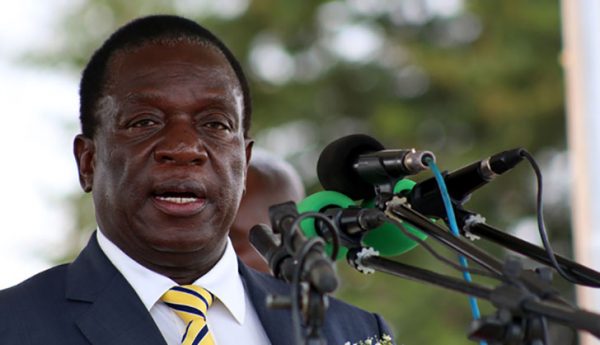President Mnangagwa slams G7 for diamond restrictions

The President Emmerson Mnangagwa, has voiced opposition to decisions seemingly made by G7 countries to propose restrictions on the trade of diamonds without consulting African players or the Kimberley Process Certification Scheme (KPCS).
In his official opening remarks at the 9th General Meeting of the African Diamond Producers Association (ADPA) Council of Ministers on Thursday, the President said ADPA should assert the African position on matters of diamond production, trade, and pricing.
He stated that western countries should respect Africa’s decisions and not propose restrictions on the trade of natural diamonds without consulting Africa.
“I challenge you, as representatives of our countries, to assert the African position on matters of diamond production, trade, and pricing. We are an independent continent, and those from overseas must talk to us as equals and respect us. The proposed restrictions on the trade of natural diamonds being imposed by some market players are unacceptable. The benefits and interests of our people should be respected. We are the guide and key when it comes to the exploitation of our abundant natural resource elements. It is commendable that key decisions have been made at this forum,” Dr. Mnangagwa said.
Moses Engadu, Secretary-General of the Africa Minerals Strategy Group, said the G7 countries should leave trade restrictions to the Kimberley Process and not bring confusion into the matrix.
He said the G7 is not supposed to issue restrictions without engaging the KP, as this will undermine the authority of the KP in diamond trading.
He further stated that the restrictions undermine sovereign African governments’ ability to send their gemstones directly to their chosen market. It also undermines legitimate local industry beneficiation and could encourage smuggling, which the WFDB says would be counterproductive.
“In December, the G7 nations of Canada, France, Germany, Italy, Japan, the U.K., and the U.S. declared an outright ban on Russian diamonds, effective from Jan. 1. That is to be followed by the gradual implementation of restrictions on indirectly imported Russian diamonds starting from March 1. By September, a new system for verifying the origins of these gems is expected to be in place, although details regarding the verification process and its location remain uncertain.”
Some diamond producers are calling for more explicit guidance and a more global, collaborative approach to ensure transparency and ethical sourcing without disproportionately impacting the broader industry. They stress the need for solutions that do not centralize trade to a single point (such as Antwerp) and request the adoption of technology that could support the ethical tracking of diamonds across all regions, including support for artisanal and small-scale miners.


